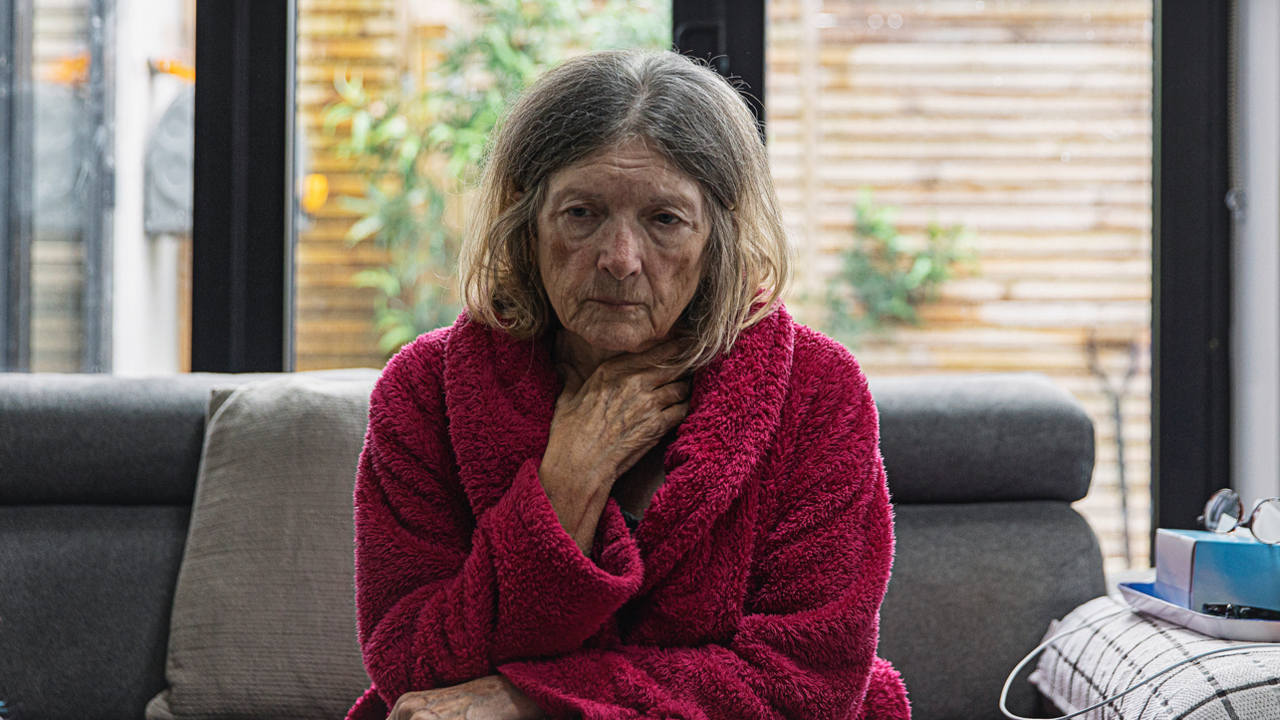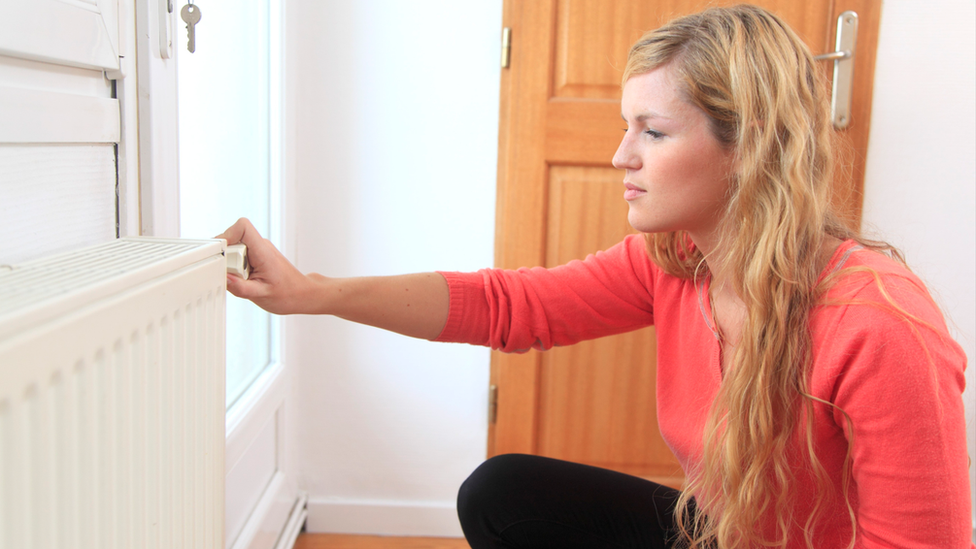Energy price hikes ‘hit physical and mental health’

The research was not a quantitative analysis but instead aimed to gather first hand experiences
- Published
High energy prices have damaged the physical and mental health of vulnerable people in Northern Ireland, new research by the Utility Regulator suggests., external
The regulator commissioned a research company to interview 42 people between November 2023 and January 2024.
The research was not a quantitative analysis but instead aimed to gather first-hand experiences.
It found that many of the participants had adopted "harmful coping strategies" such as skipping meals or drastically reducing their energy use.
'Poor health'
The participants came from a variety of backgrounds, including differences in employment and housing status and the type of heating they use.
Some had always struggled to pay for their energy, while for others life changes like illness or having children coincided with the spike in energy prices.
Just over half of the participants had a disability or lived with someone who has a disability.
The report said that "most participants admitted to feeling stressed trying to figure out how to pay for their rising bills".
"Numerous participants explained that they become especially anxious at night when they have time to think, which unfortunately results in losing sleep as they try to work out how they will continue to get by."
This had contributed to a sense of hopelessness among some of the participants.
'This is a new low'
Evidence from them included a man who said his "entire life is consumed by not being able to afford other things because of my energy bills".
One of the female interviewees said that "in the depths of January blues, I transferred 90p from my savings account into my current account so that I could top up on electricity".
"I thought to myself, this is a new low," she added.
When asked about physical health, some interviewees believed that their poor health was a direct result of their rationing of the heating, especially when considering damp in the home and the inefficiency of their home at retaining heat.
Others mentioned how they had been eating poorer quality food or less food, in order to save money.
As a result, their health had declined or they had either gained or lost weight.
Sinead Dynan, Head of Consumer Protection at the Utility Regulator, said the work had "provided a glimpse into the stark reality some consumers are dealing with, which further highlights why our consumer protection work is so vitally important".
"This research will help shape our work and strengthen our expectations of the service that electricity and gas suppliers provide," she added.
Related topics
- Published1 April 2024

- Published30 June 2023
